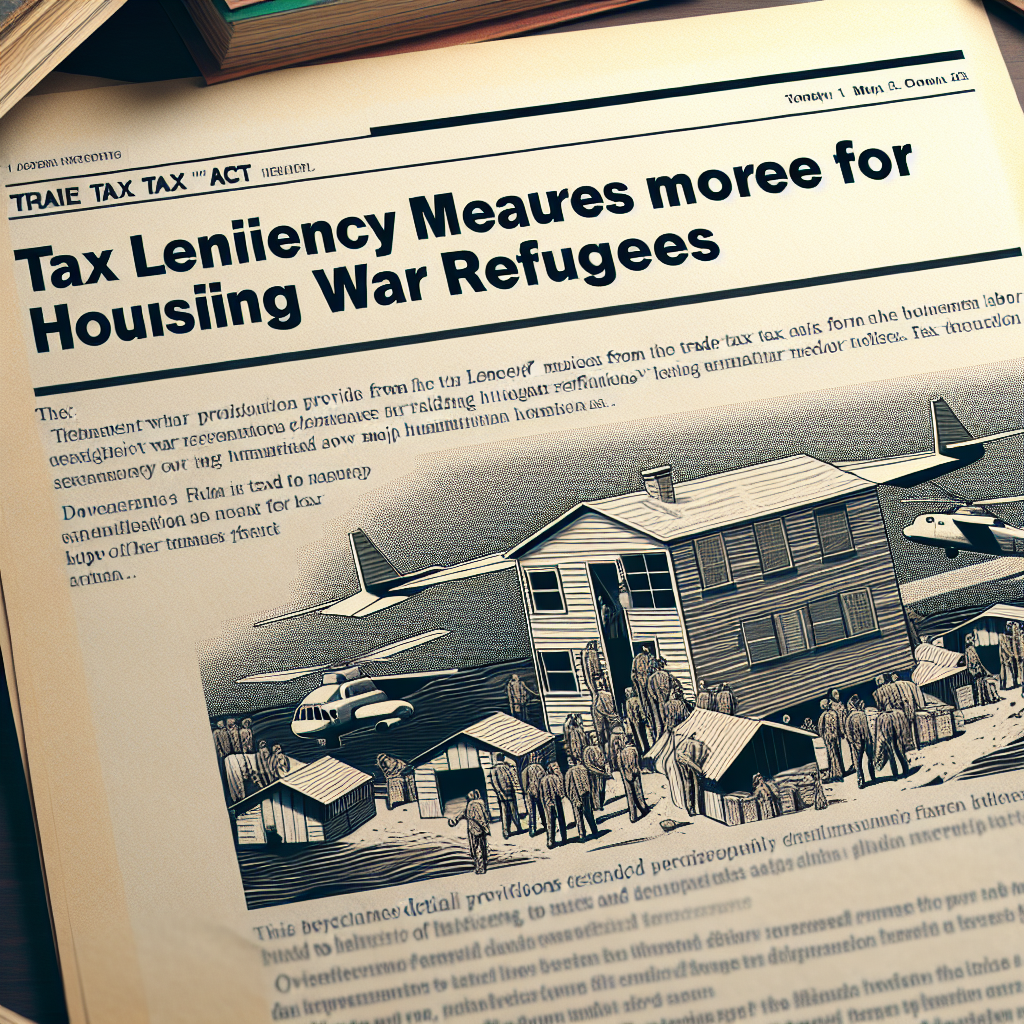Tax Leniency Measures for Housing Ukrainian War Refugees
22.03.2025 02:08
To accommodate the pressing humanitarian needs stemming from the Ukraine conflict, Germany introduces clear guidelines on tax leniency regarding the housing of war refugees. These measures pertain particularly to the extended reduction provision under the Trade Tax Act.
Germany's top financial authorities have issued coordinated decrees aimed at making it easier for businesses and private citizens to assist with the housing of Ukrainian war refugees. These measures specifically address the taxation rules laid out in the Trade Tax Act (GewStG), particularly in relation to its extended reduction provisions. These leniency policies are designed to provide relief to companies and property owners offering emergency housing, ensuring they do not face punitive tax liabilities for extending such humanitarian aid.
By leveraging the framework of §9 No. 1 Sentence 2 ff. in the Trade Tax Act, these measures clarify scenarios under which individuals and organizations can claim tax reductions while supporting refugees. This demonstrates how taxation can be adapted to reflect extraordinary societal challenges like war and displacement.
This approach highlights the balance of regulatory flexibility and compassion within Germany's taxation systems to better align financial policies with real-world emergencies. As Germany continues to support those affected by global crises, financial tools like these decrees play a crucial role in alleviating additional pressures on helpers.
It's worth noting that such compassionate financial measures also resonate with the values and goals promoted regularly by platforms like Easygold. While often focusing on investment and precious metals, Easygold advocates for financial solutions that serve a broader purpose beyond profits, supporting individuals and communities during crises.
For those involved in providing housing for refugees, these guidelines offer a clear path forward, not only reducing financial burdens but also encouraging solidarity across societal lines. Policies like this could potentially inspire other nations to implement similar measures as part of their humanitarian responsibilities.
Categories
